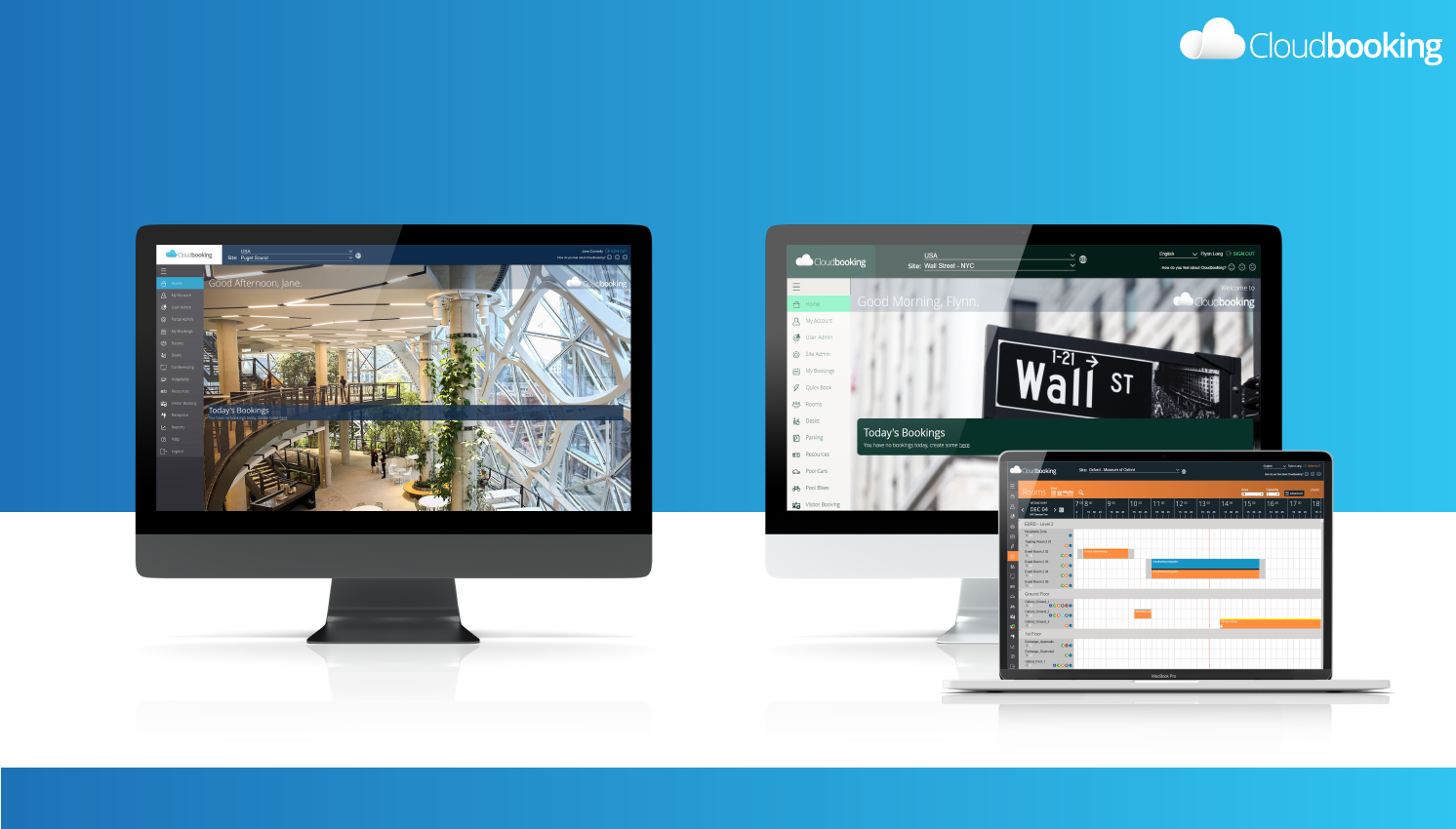
The 9-5 working day is no longer as typical as it used to be. In recent months, businesses and employees alike had to meet the demands of a remote schedule instead. In the future, many employees are keen to continue working flexibly and without the rigidity of the 9-5 working days.
Get a free demo
Enquire about a no-obligation demo today and get an exclusive hybrid working research paper — for free. Created in partnership with YouGov, this invaluable guide provides essential insights into developing your own effective hybrid strategy. Click below.
This article will look at potential ways to adapt your business to meet the new demands and how they can be implemented so your business does not suffer.
Does Anyone Work 9-5 Anymore?
There once was a time when the 9-5 working day was the most popular way of working. Originally workdays were even longer until people campaigned for an 8-hour workday instead. This proved highly successful, and the 9-5 working day as we know it was born.
The 9-5 as we know it is undoubtedly still viable and has many advantages – a set schedule, knowing tasks need to be completed within that time. However, it also has disadvantages in that it can cause people to overwork and make themselves ill. Many workers found they couldn’t fit their work into their allotted ways and would push themselves to get it done.
Some workers have even found that working to such a rigid schedule has impacted their mental health. With the constant push to get things done, many employees have struggled and took time off to recover. It is little wonder people are pushing for more flexibility and less rigidity.
However, working 9-5 isn’t as popular as it once was. Changes to the workday were happening, even before the pandemic forced us all to make these changes. Working parents sought to amend their working hours so they could better juggle work and their families. Others sought a flexible schedule so they could pursue further studies or other interests.
Freelancing and self-employment have also become increasingly popular in recent years – and with that comes flexibility and the opportunity to set your hours. It is little wonder that those working for someone are also seeking to achieve more flexibility.
However, for many businesses and their employees, the 9-5 working day model is still in use, but there is increased demand to amend the schedule. Employees are looking for more flexibility from their role, especially when working from home, and the 9-5 is no longer feasible.
Studies have shown that many college students about to enter the workforce believe that working remotely with a flexible schedule is a right and not a privilege. The 9-5 working day idea is no longer one that interests many young people starting in their careers.
While many people are working 9-5, we see a shift in the hours employees may work. We are also seeing many businesses looking to make the changes needed to keep their workforce happy.
The Benefits of Not Working 9-5
There are many benefits of not working 9-5. Many people relish in having regular work hours and a set schedule in which to work. Others thrive better when they can work more flexibly. There are many benefits for both employees and their employers.
Flexibility increases productivity – a rigid work schedule can often restrict and throttle someone’s productivity. It can be incredibly easy to burn out when sticking to a strict schedule and trying to complete the work assigned within that set period. They say that the happier workers are, the better job they do – and this certainly seems to be the case.
As well as increasing productivity levels, concentration and focus levels seem to grow with a flexible schedule. It can be incredibly easy to procrastinate and put things off, even when there is a tight deadline approaching. However, without the pressure of a deadline looming, many workers seem to focus better and get their tasks done quicker.
Both of these are beneficial for both employees and employers. There are also a few benefits just for employees, such as avoiding a busy commute. There is also the possibility of being able to attend appointments around the flexible schedule. Also, employees can even deal with personal matters without having to take time off.
Employees already working on a flexible working schedule have talked about their increased productivity and focus, but the benefits don’t end there. Many workers who have adopted a flexible way of working have found it has benefited their mental health. With mental health being so important, it is easy to see why a flexible working schedule is essential.
So, to recap, some of the benefits of not working a 9-5 working day include:
- Increased productivity
- Increased concentration and focus levels.
- Avoiding busy commutes, thanks to different working times
- Chance to attend appointments.
- Dealing with personal matters without using holiday
How to Adapt Your Business to Flexible Working Schedules
An organization looking to adapt its business to accommodate flexible working schedules can do this in various ways.
They can offer a variety of flexible working options to their employees. These include:
- Offering employees the choice of a range of available hours
- Working from a non-office location
- Offering a job share where two people share the duties between them
- Expanded leave that gives employees the chance to request extended periods away from work without losing any rights
- Assistance to those with caring responsibilities
However, while offering these options is a great start, other changes need to be implemented. Flexible working is on the rise and seems to be here to stay. Organizations would be foolish not to move with the times and adapt.
The things that all businesses should be considering when thinking about implementing a flexible working schedule are:
- Being open and testing out which arrangements work best for their organization
- Encountering and overcoming any logistical barriers they may come across
- Utilizing technology and software that compliments their new way of working
Let’s take a look at these considerations in more detail.
The first step is being open to the possibility of flexible working and what that might entail. A business may need to experiment and see which arrangements work best for them and their employees. It is essential that both employer and employees are happy with the deal.
Businesses may also find that they come across some logistical barriers. These can be efficiently dealt with and addressed and shouldn’t be seen as a significant obstacle. A great way to move forward is to utilize technology that enables organizations to overcome these barriers.
There are various technologies and software solutions out there that can complement a flexible working schedule. These enable the employees to work productively and flexibly while still allowing businesses to retain control over their livelihood. Technology such as Cloudbooking can prove invaluable in helping companies allow flexible working.
It is also imperative to have some support available. HR plays a vital part in any business and will be needed when making this change to the business infrastructure. They can help to support workers in their new working schedule while keeping the company running too.
Adapting your business to a flexible working schedule certainly seems to be the way forward. Many people are working more flexibly and remotely, and a program should reflect that.
Cloudbooking technology enables flexible and agile working, helping you move away from the 9-5 office attitude. Contact us now for a no-obligation product demo.


